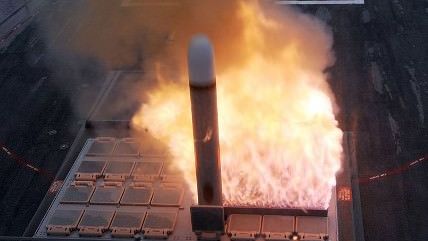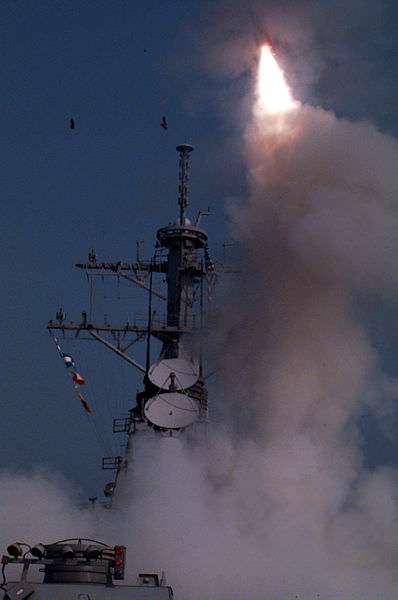US Preparing for Intervention Most Americans Oppose in Syria


The U.S. is making plans for a military response if it is confirmed that chemical weapons were used last week in attacks that opposition activists claim killed at least 1,000 people. Last week the Navy strengthened its presence in the eastern Mediterranean. With the USS Mahan staying in the region longer than expected there are now four American ships with cruise missile capability in the region.
United Nations weapons inspectors are examining the sites of the suspected chemical attacks today. One of the U.N.'s vehicles was hit by sniper fire.
On Friday Secretary of Defense Chuck Hagel said that if the use of chemical weapons is confirmed the U.S. would respond in order to prevent another chemical attack.
Last month Chairman of the Joint Chiefs of Staff Gen. Martin Dempsey outlined military options in Syria in a letter to Sen. Carl Levin (D-Mich.), chairman of the Senate Committee on Armed Services. The last of the five options Dempsey outlined was the "Control of Chemical Weapons." Below is a section of Dempsey's thoughts on how the U.S. could prevent the proliferation of chemical weapons in Syria:
We do this by destroying portions of Syria's massive stockpile, interdicting its movement and delivery, or by seizing and securing program components. At a minimum, this option would call for a no-fly zone as well as air and missile strikes involving hundreds of aircraft, ships, submarines, and other enablers. Thousands of special operations forces and other ground forces would be needed to assault and secure critical sites. Costs could also average well over one billion dollars per month.
CBS is reporting that the Pentagon is preparing for cruise missile strikes on targets in Syria. Although Dempsey's letter to Levin was written before the recent suspected chemical weapon attacks it does provide a glimpse at what sort of operations the U.S. military may soon be conducting in Syria in order to prevent the proliferation of chemical weapons if the use of chemical weapons is confirmed. Although Dempsey did mention ground forces being deployed in Syria in order to secure chemical weapons sites in his letter to Levin even Sens. John McCain (R-Ariz.) and Lindsey Graham (R-S.C.), two of the leading advocates of intervention, have said that an intervention in Syria would not require having troops on the ground.
While it is looking increasingly like that the U.S. will respond to the confirmed use of chemical weapons in Syria with military force Obama may want to consider that even with the use of chemical weapons taken into account most Americans oppose intervention in Syria.


Show Comments (133)